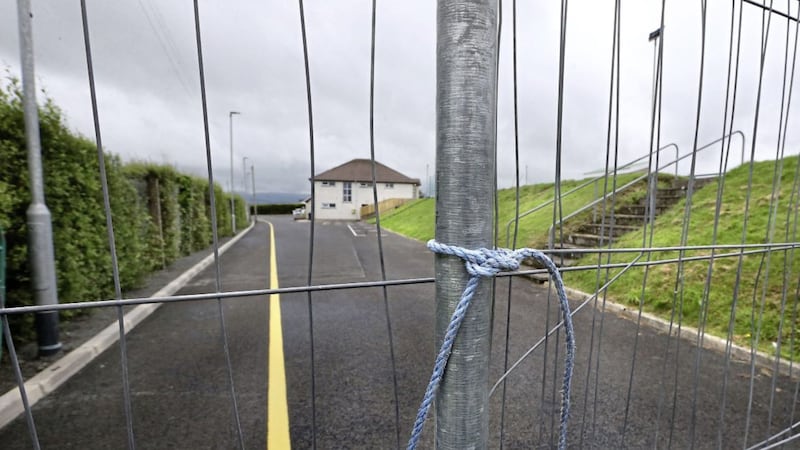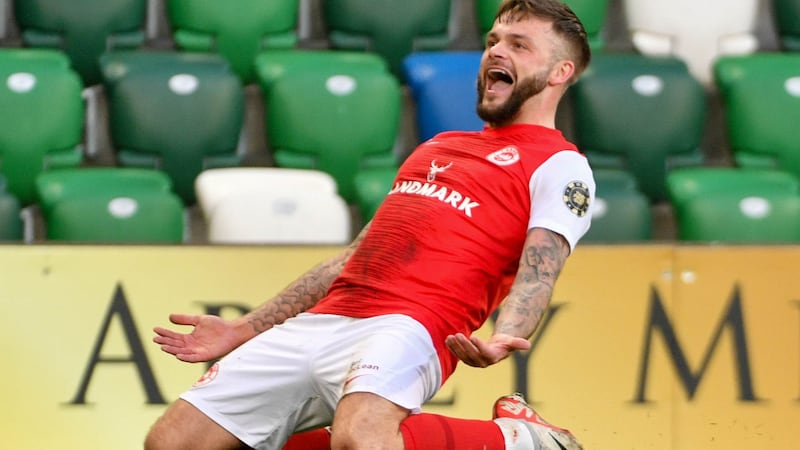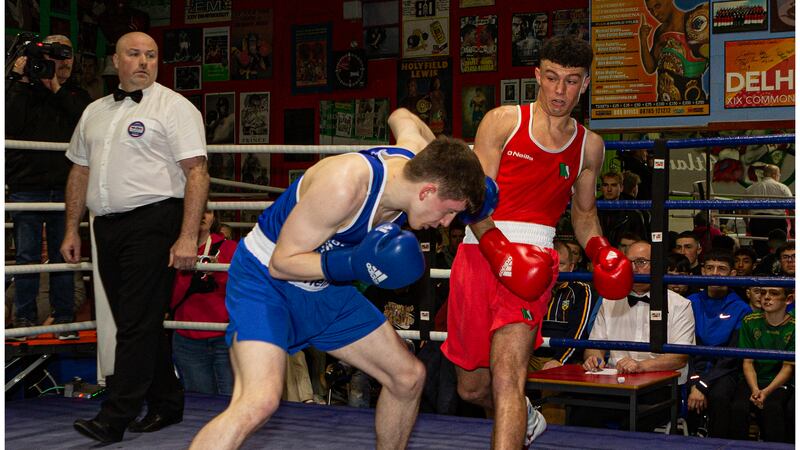“We are saying don’t go to work, go to work. Don’t take public transport. Don’t go to work. Go to work. Stay indoors. If you can work from home, go to work. Go outside. Don’t go outside. And then we will, or won’t, something or other.”
LAUGHTER is the best medicine, and the best humour is always splashed with the truth.
That so much as a second thought is required to recognise that Matt Lucas’s above parody isn’t actually Boris Johnson says all that needs to be said.
His and his government’s response to the crisis has been calamitous.
Here, thanks largely to the DUP, we initially stuck tight to his plan before sense finally prevailed and our executive broke away to begin doing its own thing.
But unionism, terrified by anything that has the faintest whiff of united Ireland about it, has continued to resist the idea of an all-island approach.
The north continues to move days, sometimes weeks, behind the south. That has not helped the situation either.
Below, Leo Varadkar seemed to be doing a steady job initially but as more time has passed, it has become apparent that even they didn’t go hard enough at lockdown.
It is only the countries that put an airtight seal around themselves who have had proper success.
New Zealand closed their economy like everyone else, but crucially they shut the borders off too.
No-one gets in or out, so the virus doesn’t get in or out.
When they reopened, the virus returned. So they locked down again.
It’s been almost three months since they recorded a case that they didn’t know the source of very quickly.
The result is that within the country, they can proceed as if nothing ever happened.
People are able to work. They’re able to socialise. They’re able to mix freely. They are able to play sport, and attend events in their thousands.
The virus effectively doesn’t exist in New Zealand, and it can’t get in..
Sections of the economy will suffer from the lack of international travel, but that is a far smaller price than we will pay.
Irish borders, north and south, remain open to all.
With clowns to the left (USA) and jokers to the right (England, not Scotland), it feels like we’re in the Stealers Wheels song.
As long as people are allowed to fly here, especially from those two countries, then we cannot be rid of this virus before a vaccine arrives.
That is a huge failure which has occurred because the health of the economy has been put before the health of the people.
So we’re stuck now.
After months of propping up communities through the selfless volunteerism we expect of ourselves, the GAA has made a phased return to playing games in recent weeks.
There is no better feeling than catching one right in the sweet spot, seeing it sail straight over the black spot.
No better sight than standing on the balcony in Clonoe, watching the one-hop passes fly at Connor McAliskey and Collie Doris, skimming over the bone-dry turf.
Football is back, but it might not be here to stay.
It’s been a strange feeling the last few days, to be a playing member of one of the 10 clubs in north Derry that has shut its gates temporarily because of a local outbreak of covid-19.
Some have praised the clubs for their swift action.
Others, including many in the corridors of power, appear to believe that the clubs jumped too soon.
It almost feels like, by closing down for a few days, you’ve done something wrong.
It’s very easy when you don’t have a decision to make.
When you hear positive tests being recorded in a ring around you, when you know the people and their families personally, then it is only natural that you do what you can to protect your community.
It’s alright reading an email that says you’re fine, not to worry about it until someone has a positive test, as the GAA guidelines do.
Imagine for one second how it would feel for those people if they were in any way to contribute to the spread of a virus that had a devastating effect on a local family.
Covid-19 is as deadly to the vulnerable and elderly as it was four months ago.
Ordinary club members are not public health experts.
For context, nine of the 10 clubs that closed down are located within a 17-mile radius.
There are underage amalgamations. There are dual players who crossover between clubs. There are families spread around, and there are men working together during the day.
The clubs have been flat out playing challenge games among other.
Brian McAvoy might not have been wrong when he questioned the impact a GAA shutdown would have when the rest of life was continuing around.
The science suggests you are 19 times less likely to contract covid-19 outdoors.
But even if it’s only to take stock for a few days and see where things lie, the clubs that shut down were right to do so.
They didn't do it to be martyrs. They did it because they don't know what the right thing to do is, and it was best to be cautious.
Because right from the very top of government, the signals have been so mixed that, in all honesty, do we really know what we can and cannot do any more?
You can go to a pub and sit drinking, but you can’t stand outside and watch a football match?
GAA clubs couldn’t have a single supporter through their gates on Sunday, yet look around the packed beaches or outdoor restaurants or indoor workplaces?
That left a surreal and dangerous situation where children standing up on cherry pickers along a main road became safer than being allowed to stand inside the gates of the pitch.
That’s not to say that we are ready for football or big crowds.
I genuinely don’t believe we are.
But that’s not because of anything the GAA has done wrong.
Their response to the pandemic has been exemplary.
Public health bodies have said sport is ok to resume, and the GAA has been right to move along in that direction.
The virus has not gone away, and is not going away.
We do need to find a new way to live, and a life without GAA would not be the same.
But when it comes to a decision, clubs must make the people of their community the first thought.
Erring on the side of caution is not a fault.









